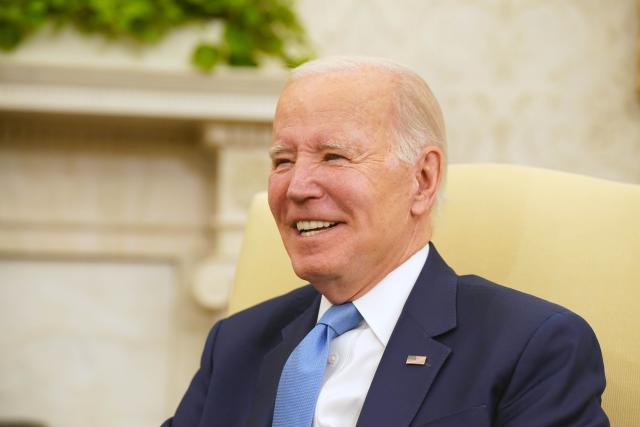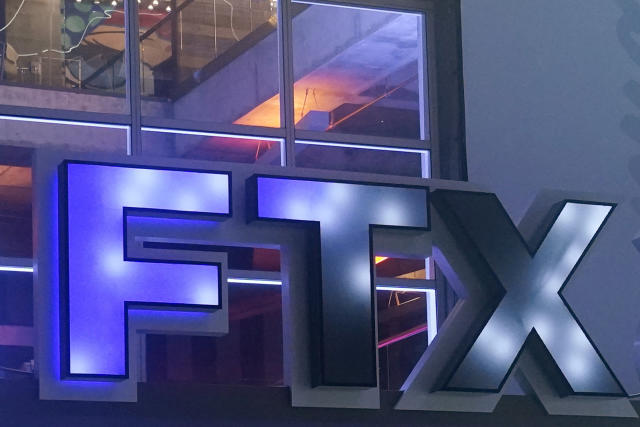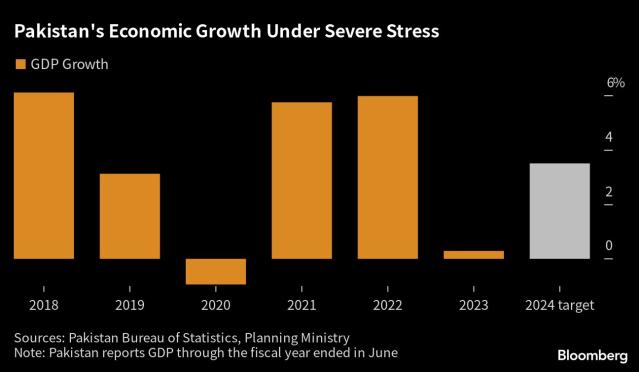World Geography And Politics Daily News | 10 Jun 2023

Views (150)

After Lobbying Crush, Biden Set to Boost Biodiesel in Nation’s Fuel
(Bloomberg) -- The Biden administration is on track to modestly boost the amount of biodiesel that must be blended into the nation’s fuel supply when it finalizes annual quotas next week. Most Read from BloombergAmericans Are Leaving Portugal as Golden Visa Honeymoon EndsDonald Trump Charged in Florida Over Secret Documents CaseJeff Bezos Has Gained $10 on Mystery Purchase of One Amazon ShareRussian Elite Is Souring on Putin’s Chances of Winning His WarTrump Tried to Hide Documents, Share Secret

(Bloomberg) -- The Biden administration is on track to modestly boost the amount of biodiesel that must be blended into the nation’s fuel supply when it finalizes annual quotas next week.
Most Read from Bloomberg
While the final targets are expected to be higher than the 2.82 billion gallon requirement originally proposed for this year, they are unlikely to hit the much higher volumes sought by biodiesel producers, said people familiar with the matter who asked not to be named because deliberations are still underway.
The Environmental Protection Agency is due to issue the biofuel-blending quotas by June 14 under a court settlement with the ethanol advocacy group Growth Energy. In part to meet the deadline, the EPA already jettisoned a controversial proposal to expand the program by rewarding automakers for some electric vehicle charging, with plans to advance the initiative separately.
Renewable diesel — made from crops and animal fat — has been heralded as the best solution to reduce carbon emissions in hard-to-electrify heavy road transport.
In December, the EPA proposed to require as much as 22.68 billion gallons of renewable fuels in 2025 — including as much as 15.25 billion gallons of conventional corn-based ethanol — up from 20.87 billion gallons in 2022. For 2023, the EPA proposed requiring 2.82 billion gallons of biodiesel — up from 2.76 billion gallons in 2022.
Biodiesel advocates said that lowballed the industry’s potential and have spent months lobbying EPA and White House officials to boost the requirements by 500 million gallons each year. Biodiesel lobbyists are still working to encourage higher numbers, one of the people said.
Related: Cargill, Exxon Pullback on Green Fuel Signals Industry Setback
The proposed “volumes simply do not provide sufficient market space for the fuels that are produced and available now to help numerous industries decarbonize their transportation footprint,” dozens of agriculture and biofuel companies told President Joe Biden in a letter Thursday. The EPA can confidently boost the requirements given that domestic biodiesel and renewable diesel production for January to April 2023 already is 30% higher than the same time period last year, they said.
The Biden administration, in turn, quietly has been laying the foundation for an increase.
While the EPA worked to finalize its quota plan, the US Agriculture Department provided data showing enough available soybean oil, canola and other feedstocks to support a surge in US production.
Administration officials also have pored over information about new and announced biodiesel and renewable diesel production capacity that provides additional reassurance that higher quotas can be met, even with inflation creating headwinds for the industry, said the people.
EPA representatives declined to comment while the measure is under interagency review.
Most Read from Bloomberg Businessweek
©2023 Bloomberg L.P.
David Davis says secret unit that targeted lockdown dissent should be shut down
David Davis is used to being spied on. When he was Brexit secretary, he used to carry around his Brexit papers in a steel suitcase with a built-in Faraday cage to stop cameras taking X-ray photos of the contents.

David Davis is used to being spied on. When he was Brexit secretary, he used to carry around his Brexit papers in a steel suitcase with a built-in Faraday cage to stop cameras taking X-ray photos of the contents.
“What we have at the moment is a proliferation of things where the most paranoid wing of government is interfering in the democratic process,” he told me on this week’s Chopper’s Politics podcast.
“There would be a limit to what they could do 25 years ago... The trouble today is we don’t know what the algorithms do. We have no idea what deal they’ve struck with Google or Twitter or whoever.
“And that’s a really serious influence on debate, not just in Britain, but across the entire world.”
Alarmingly, Mr Davis himself was targeted by the unit. A report from the Big Brother Watch campaign group found that Mr Davis was monitored by the CDU. A subject access request by Mr Davis, Conservative MP for Haltemprice and Howden, found that the MP’s tweets questioning the modelling put forward at the start of the pandemic were monitored and recorded.
“The entry does not cite which specific statements from Mr Davis warranted attention but mentions him as ‘critical of the government’,” Big Brother Watch said.
The timing of that entry came just weeks after Mr Davis had co-written a Telegraph article questioning the mathematical reasoning underpinning the Imperial College model that had influenced the Government’s early Covid-19 decision-making on the lockdowns. Mr Davis was not alone. Big Brother Watch found that other MPs, including Labour’s Bell Ribeiro-Addy, had come to the CDU’s attention.
Mr Davis said he thinks he was targeted by the CDU because he had challenged the use of polling data to justify ministers’ authoritarian policies using Freedom of Information requests and Parliamentary Questions.
“Early on, during the early part of the Covid pandemic, I began to worry that we weren’t really making decisions on science,” he says.
“I started FoI-ing and putting questions in about the polling data because I thought it looked more like the Government was making judgements on focus groups and polls than it was on any science.
“Bear in mind the science was very primitive at that point and I started asking about that and getting absolutely blanked out.
“A lot of the arguments at the time were not really between science and non-science. They were between authority and non-authority.”
Mr Davis pointed out that some “quite well qualified people were worried that this virus had come from a laboratory. They were absolutely crushed on social media – they were cancelled”.
“We didn’t really know that we were actually being monitored. I think if we’d known at the time there would have been absolute outrage,” he said.
The CDU appears to move far away from its original purpose to stop foreign governments interfering in UK elections.
Michelle Donelan, who was culture secretary before the change, moved to the Science Department, and remains in charge of the CDU, although she is currently on maternity leave. Mr Davis said that Ms Donelan “was of a mind to shut it down but was talked out of it”. Asked if the Government should wind it up he replied: “Basically, yes, I think it should.”
“[The CDU’s] genesis was in the concern that foreign nations might meddle in our electoral system. Now, that’s a legitimate concern.
“But then why be so cagey about it? You know, we still, to this day, can’t find out how much the Government spends on the CDU.
“If the state wants to do something to protect elections, which is important, against foreign influence, then they should do so explicitly.
“That requires one unit, one reaction system, one understanding of policy, which the whole House [of Commons], both sides, should be in favour of.”
The Public Accounts Committee – Parliament’s most powerful committee – should investigate its work and how it was funded, he said.
“A parliamentary inquiry is probably the best thing, the biggest combination of power and access and speed, because we want to get rid of this thing, either replace it with something we’ve got a very specific aim or limit its scope, one or the other.”
For Mr Davis, the warning signs about the CDU are there for all to see in its name. “You have to ask why. It is not called the Disinformation Monitoring Unit. It’s called the Counter Disinformation Unit.
Mr Davis asked about links between social media companies and the Government. He said: “Were they asking them to change the algorithm? Because, bear in mind, in this day and age you can get away with reducing somebody’s effectiveness, not by cancelling them, which is high profile, but by changing the algorithms and nobody sees it.”
Mr Davis said he was also “cancelled by YouTube” after a video emerged of him making a speech against vaccine passports.
“I was doing that because the claim the Government made with the vaccine stops transmission has been proven to be untrue,” he said.
“So the perpetrators of disinformation was the Government on that occasion. And you have to wonder how many of these algorithms are agreed with Government because they’re very pro-Establishment algorithms.”
On Friday night a Government spokesman said ministers would be “happy” to appear in front of Commons committees to discuss the CDU, which had a purpose “to track narratives and trends using publicly available information online to protect public health and national security.
“It does not monitor political debate and does not refer any content from journalists, politicians or political parties to social media companies.”
The CDU was currently focused on “disinformation related to Russia’s illegal invasion of Ukraine”.
Whitehall sources said it was categorically untrue that Ms Donelan was “talked out” of closing the CDU.
I asked Mr Davis why Governments become more authoritarian. “Partly it’s the natural tendency of organisations,” he said. “Organisations don’t like being monitored…
“Whitehall is all about control of information. Information is power. They know that so they tend to hoard it for themselves. But the second reason, and this is understandable... is they didn’t know what else to do.
“They’d never faced something like this before. The same is true with a disease, a pandemic.”
Judge in FTX bankruptcy rejects media challenge, says customer names can remain secret
The names of individual customers of collapsed cryptocurrency exchange FTX Trading can be permanently shielded from public disclosure, a Delaware bankruptcy judge ruled Friday. Following a two-day hearing, Judge John Dorsey rejected arguments from lawyers for several media outlets and for the U.S. bankruptcy trustee, which serves as a government watchdog in Chapter 11 reorganization cases, challenging FTX's request to keep the names of customers and creditors secret. Dorsey ruled that customer identities constitute a trade secret.

DOVER, Del. (AP) — The names of individual customers of collapsed cryptocurrency exchange FTX Trading can be permanently shielded from public disclosure, a Delaware bankruptcy judge ruled Friday.
Following a two-day hearing, Judge John Dorsey rejected arguments from lawyers for several media outlets and for the U.S. bankruptcy trustee, which serves as a government watchdog in Chapter 11 reorganization cases, challenging FTX's request to keep the names of customers and creditors secret.
Dorsey ruled that customer identities constitute a trade secret. He also said FTX customers need to be protected from bad actors who might target them by scouring the internet and the “dark web” for their personal information.
“It’s the customers that are the most important issue here,” he said. “I want to make sure that they are protected and they don’t fall victim to any types of scams that might be happening out there.”
Katie Townsend, an attorney for the media outlets, had argued that the press and the public have a “compelling and legitimate interest” in knowing the names of those affected by the stunning collapse of FTX.
“That collapse sent shock waves not just through the cryptocurrency industry, but the entire financial industry,” Townsend said. “And at this point, we don’t even know where the shock waves, both individually and institutionally, have hit the hardest, and what institutions may have the largest, or no, exposure as a result.”
“The debtors are in a position to realize value from these customer lists,” said FTX attorney Brian Glueckstein.
In January, Dorsey ruled that FTX could redact the names of all customers, and the addresses and email addresses of non-individual customers, from court filings for 90 days. He also authorized FTX to permanently keep secret the addresses and email addresses of individual creditors and equity holders.
On Friday, the judge approved the permanent sealing of individual customer names and extended the secrecy regarding the names of institutional customers for another 90 days.
Dorsey refused, however, to continue to allow FTX to shield the names of individual creditors or equity holders who are citizens of the United Kingdom or European Union nations and covered under a consumer protection program known as the General Data Protection Regulation, or GDPR. FTX sought similar treatment for individuals covered under Japanese data privacy laws.
Dorsey said that, in response to an objection from the U.S. trustee, FTX had presented no evidence to show that those foreign individuals might be harmed, or that FTX might be sanctioned, if their names are disclosed.
Dorsey also rejected a request by attorneys for an ad hoc committee of non-U.S. customers to keep the names of its members secret. If the committee wants to participate in the case, then the names of its members must be disclosed, he said.
According to redacted court filings, the ad hoc committee currently has 35 members, with estimated economic interests in FTX ranging from $64,434 to $1.5 billion. Dorsey noted that some members may decide to drop out based on his ruling.
Ukraine is going to keep coming for us with counter-attacks, acknowledges Putin
Vladimir Putin said he expects Ukraine to keep attacking as he acknowledged that an offensive to push Russian troops out of the country had begun.

Vladimir Putin said he expects Ukraine to keep attacking as he acknowledged that an offensive to push Russian troops out of the country had begun.
“All counter-offensive efforts so far have failed,” Putin said in comments to a Russian journalist, “but the offensive potential of the Kyiv regime still remains”.
He added that “there is progress” in Donbas, but said: “It is not time to talk about it yet.”
The Khortytsia and Tavria operational-strategic groups are the major Ukrainian formations fighting in southern Ukraine.
A military spokesman said in an update on Friday that “the enemy continues to conduct defensive actions on Zaporizhzhia and Kherson directions,” but did not comment on Ukrainian actions there.
The Russian ministry of defence said on Friday that its forces had repelled two Ukrainian assaults south of Orikhiv in the Zaporizhzhia region and four near Velyka Novosilka, about 50 miles further east.
There were also reports of a Ukrainian attack on the village of Lobkove, 15 miles to the west.
Alexander Sladkov, a correspondent for Russian media, said the line was stable and Ukrainian attacks had so far failed to make progress despite “intense” fighting.
War Gonzo, a blog with close ties to the military and the Wagner mercenary group, said the situation was “serious” and the Ukrainians had succeeded in reaching Russian lines near the village of Robotino, southeast of Orikhiv, during a night attack.
None of the claims could be independently verified, and propagandists on both sides released drone footage to give the impression that they were winning.
Another, published by pro-Ukrainian sources, showed a number of Russian infantrymen abandoning trenches and fleeing on foot in the face of a Ukrainian attack.
Elsewhere, the Ukrainians claimed to have advanced 1,200 metres in 24 hours near Bakhmut in Donbas, a significant gain if confirmed.
Serhiy Cherevaty, a military spokesman, said the attack had taken advantage of Russian confusion during a troop rotation.
A Ukrainian breakthrough in Zaporizhzhia region could threaten to cut the land corridor connecting Russia to Crimea, isolating Russian troops there.
Russia has built defensive lines several miles deep in anticipation of the offensive.
Michael Kofman, director of Russia studies at the Centre for Naval Analysis, told The Economist: “It is too early to judge the operation, as much of the fighting has only reached Russia’s initial lines. The indications are that Ukrainian forces have made gains, digging into Russian lines, but also that the fighting is heavy, resulting in losses.”
Major General Ivan Popov, the commander of Russia’s 58th army, which is defending the area, said in a voice note shared by Russian military bloggers that attacking forces included Ukraine’s 47th separate assault brigade.
The 47th is one of several to have undergone training in Britain and be equipped with Western weapons in preparation for the counter offensive.
There was no confirmation from the brigade. The last message on its official Telegram account was posted on Sunday and says: “Plans love silence. There will be no start announcement.”
Pakistan to Push Growth to 3.5% Amid IMF Austerity Measures
(Bloomberg) -- Pakistan’s government presented a budget for the next financial year that looks to balance boosting economic growth with the tough conditions imposed by the International Monetary Fund to revive a bailout program.Most Read from BloombergAmericans Are Leaving Portugal as Golden Visa Honeymoon EndsDonald Trump Charged in Florida Over Secret Documents CaseJeff Bezos Has Gained $10 on Mystery Purchase of One Amazon ShareRussian Elite Is Souring on Putin’s Chances of Winning His WarTru

(Bloomberg) -- Pakistan’s government presented a budget for the next financial year that looks to balance boosting economic growth with the tough conditions imposed by the International Monetary Fund to revive a bailout program.
Most Read from Bloomberg
Finance Minister Ishaq Dar in his speech in the lower house of parliament Friday laid out a growth target of 3.5% for the fiscal year that starts July 1. The IMF predicted the same forecast for Pakistan in April. It’s an ambitious goal after currency depreciation, unprecedented summer floods and import curbs are estimated to slash GDP growth to 0.3% in the current year through June.
Prime Minister Shehbaz Sharif’s coalition government aims to trim the fiscal deficit to 6.5% next financial year, from 7% estimated for the current year, to secure the resumption of the IMF’s $6.7 billion program. The country aims to raise revenue collection by 28% to 9.2 trillion rupees to fund its record 1.15 trillion rupees public sector development program in the new year. Raising taxes will test his administration’s already frayed popularity ahead of a national election due no later than October.
“Pakistan will have a hard time convincing the IMF with such an ambitious budget,” Khurram Schehzad, chief executive officer of Alpha Beta Core Solutions Pvt Ltd., a financial consultancy, said from Karachi. The government will struggle to hit its tax revenue target, he said.
The government has shared its budget documents with the Washington-based lender to demonstrate its commitment to sticking to the program goals.
“IMF program is the government’s top most priority,” Dar said in Islamabad. “We are trying our best to sign the agreement as soon as possible and complete the ninth review this month.”
Pakistan is passing through the worst phase of its economic history, Dar said. Its currency has slid almost 30% against the dollar over the last year, its foreign exchange reserves now cover only about one month of imports and there’s at least a $2 billion gap in external funding out of a $6 billion target set out by the IMF.
The IMF’s program will resume once there is “proper market functioning” of the Pakistani rupee, the government follows the program goals in the budget and adequate financing, Esther Perez Ruiz, the IMF’s resident representative for Pakistan, had said in an email Monday. Pakistan’s loan program has been stalled for more than six months and expires in three weeks.
The nation expects that it will need to secure a new IMF program and budgeted receiving about $2.5 billion from the lender next year, according to documents. Pakistan has struggled to raise overseas loans after multiple downgrades by rating companies and an increasing risk of default.
On Thursday, hundreds of government employees demanding pay rises protested near Constitution Avenue in the capital Islamabad, where key government buildings including the parliament, Supreme Court and the Prime Minister’s office.
The ruling coalition proposes to raise an allowance in the salaries of the government employees by as much as 35% and raise pension by 17.5%, said Dar.
The economic hardships are complicated by a political crisis as former premier Imran Khan continues to clash with the country’s powerful military and the government. Sharif’s term in office ends in August and fresh polls must be called within 60 days of that.
With an eye to elections, the government is making some populist moves. It announced subsidized fertilizer and duty free import of seeds for agricultural growth. It also announced incentives for the technology sector, Dar said.
Pakistan raised expenses by about 30% to 14.5 trillion rupees with about half allocated to debt servicing. It plans to raise some of the revenue by adding a 10% tax on companies issuing bonus shares.
Typically, a budget in an election year would be front-loaded with popular measures, but the government will be “careful not to create any big mess with IMF,” said Abid Qaiyum Suleri, executive director at Sustainable Development Policy Institute, an Islamabad-based think tank.
--With assistance from Abhay Singh.
(Updates with budget details throughout.)
Most Read from Bloomberg Businessweek
©2023 Bloomberg L.P.
32 countries join Ukraine's genocide lawsuit against Russia
The majority of the judges at the United Nations' International Court of Justice (ICJ) have authorized the inclusion of 32 countries in Ukraine's genocide lawsuit against Russia, the ICJ announced on June 9.

The list includes 26 countries of the European Union, excluding only Hungary, as well as Australia, Canada, New Zealand, Norway, Liechtenstein, and the U.K.
The vote on their inclusion was supported by 14 judges against one.
The court also unanimously refused to include the U.S. in the lawsuit at the "preliminary objections stage of the proceedings."
Ukraine filed the lawsuit against Russia at the Hague in February 2022 under the Convention on the Prevention and Punishment of the Crime of Genocide.
0 Likes
